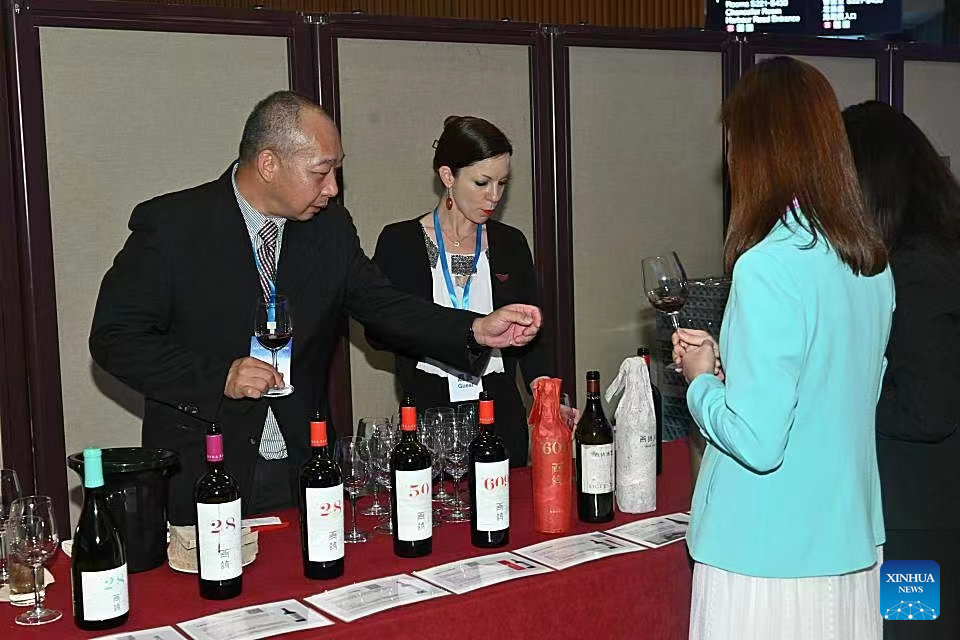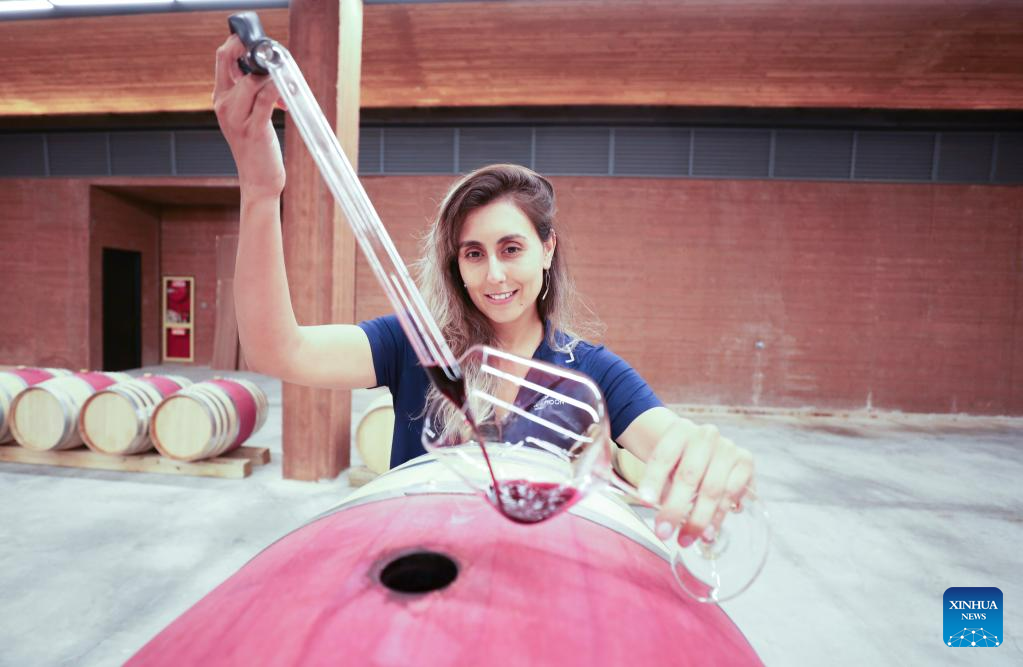
This photo taken with a mobile phone shows Christelle Chene, a French wine connoisseur working at Xige winery, promoting Ningxia wine in south China's Hong Kong, June 3, 2023. (Xinhua)
YINCHUAN, June 6 (Xinhua) -- Maria Teresa Romero Ponce was carefully trimming extra twigs on the grape vines in northwest China's Ningxia Hui Autonomous Region, China's prestigious wine production base.
The small vineyard has witnessed the 31-year-old Chilean's three years of hard work in Ningxia's Wangyueshi winery. A total of 12 kinds of wine, fermented from nine different varieties of grapes, were brewed by her over the past three years. This year, the wine she brewed finally came on the market.
"Marselan grapes are usually used to make dry red wine, but I tried them in brewing rose wine. I was super surprised that a lot of people came back and said that they like our rose wine, giving us more hope to keep producing and making good wine," said Ponce.
The wine she brewed has established a solid footing in Beijing, Shanghai, Shandong and Shenzhen, amid fierce competition in China's alcohol market.
For Ponce, wine is more than a drink, but an expression of cultures in different production areas. It tells stories about the locals and their lifestyles. Before settling down in China's Ningxia, Ponce had worked in 15 wineries in countries including France, Australia, Germany, the United States and Italy.
"Ningxia's experience is unique for me. Its hot summer is like those in southern Chile and southern Australia. However, the particular weather conditions throughout the year here are far more challenging for grape cultivation," she said.
Ponce is among some 60 brewers, connoisseurs and tasters from 23 countries who were invited by Ningxia to help develop new wine brands over the years.
The region is now widely recognized as a rising star on the world's wine producing map, with over 170 grape varieties imported from overseas apart from its home cultivated grapes.
"Wine is a true language in common use worldwide, with which China can better tell its stories to the world," said Christelle Chene, a French wine connoisseur working at Xige winery of Yinchuan, the regional capital.
Hailing from Burgundy, France, a place with a long-standing reputation for winemaking, Chene has shifted her role from a saleswoman of French wine to a cultural ambassador to help Chinese wine go global.
"Mixing Chinese culture with Western culture is a good way to develop the wine industry in China," she said.
Chene has been engaged in organizing wine festivals for three years in the region. The venue is a classic Chinese mansion, where she often serves her guests with menus featuring signature Chinese cuisines and different wines brewed in Ningxia.
As the International Conference on Grape and Wine Industries, or the third China (Ningxia) International Wine Culture and Tourism Expo, is scheduled to be held this week, both Chene and Ponce expect more international connoisseurs and wine producers to sip their wines.
"Different ideas from around the world will help make better wines with creativity and originality," said Ponce. ■

Chilean winemaker Maria Teresa Romero Ponce works in the cellar of Wangyueshi winery in Qingtongxia City, northwest China's Ningxia Hui Autonomous Region, June 1, 2023. (Xinhua/Lu Ying)



